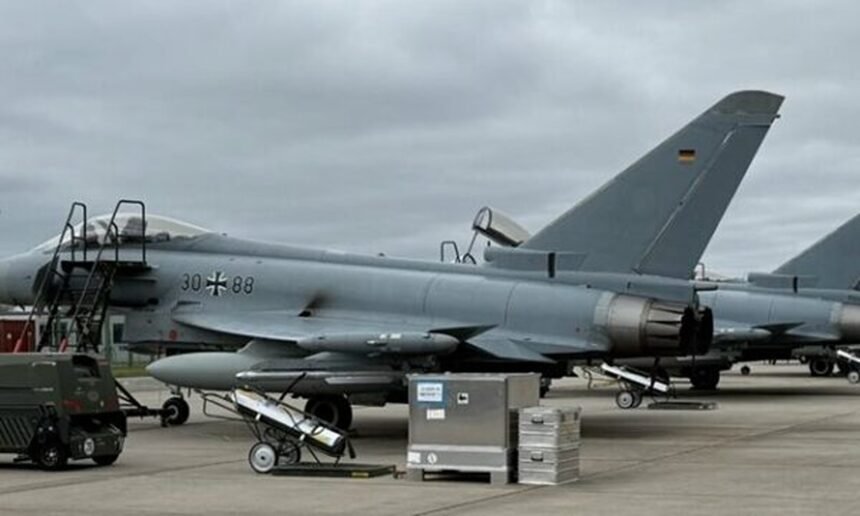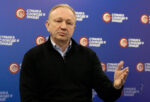German Defence Minister Boris Pistorius announced that Germany will temporarily station additional Eurofighter jets in Poland to strengthen air surveillance over NATO’s eastern flank. The move comes as NATO reinforces defensive measures against Russia following repeated airspace incursions by Russian drones.
Pistorius said Germany will contribute to protecting the eastern flank with patrol flights. A ministry spokesperson added that from December to March, two Eurofighters will be stationed in Malbork, Poland, south of Gdańsk. Earlier, Germany had already increased Eurofighter deployments for air surveillance from two to four aircraft at Rostock-Laage under NATO’s “Eastern Sentry” initiative, and is also contributing Eurofighters to Enhanced Air Policing South in Romania.
€10 billion for drones
Pistorius also announced that the German government will invest €10 billion in acquiring drones over the coming years — covering all types, including attack drones — stressing that Russia’s aggressive behavior requires sustained vigilance and strengthened defensive capabilities.
Rutte: NATO can defend its territory — but must adapt to drones
NATO defence ministers met in Brussels to discuss better deterrence and protection after recent airspace violations. NATO Secretary‑General Mark Rutte said the alliance is already capable of defending its territory in an emergency, but highlighted the need for technological adjustments to avoid using expensive missiles to shoot down relatively cheap drones. He noted that aircraft entering allied airspace are assessed case by case and aren’t automatically a threat.
Rutte also said it is already possible under current rules to shoot down hostile warplanes deemed a threat, though he cautioned this should not be the default approach.
Calls for fewer national restrictions, stronger forward presence
U.S. General Alexus Grynkewich, Supreme Allied Commander Europe, supports reducing national caveats to allow allied forces greater participation in NATO missions. Diplomats say he wants allies to lift as many national restrictions as possible.
There is also debate about deploying a much stronger NATO presence directly on the Russian border to complicate Moscow’s military posture; UK Defence Secretary John Healey urged a forceful response to escalation.







